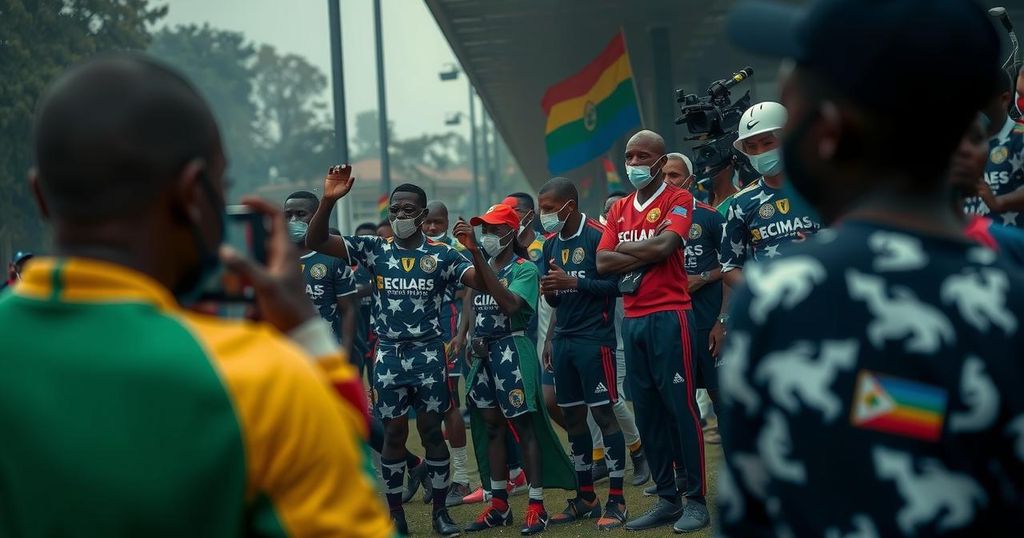Equatorial Guinea’s Sex Tape Scandal: Political Power Play Unveiled
Equatorial Guinea is grappling with a scandal involving the leaked sex tapes of Baltasar Ebang Engonga, a government official closely tied to the current president. The scandal raises questions about political power struggles, potential government crackdowns, and the implications of corruption within the ruling elite, amid declining economic conditions. This situation highlights systemic issues prevalent in the nation beyond the surfaced scandal.
A recent scandal in Equatorial Guinea involves the leaked intimate videos of Baltasar Ebang Engonga, a senior civil servant who is also a nephew of President Teodoro Obiang Nguema, the longest-serving president in the world. Numerous videos of Mr. Engonga, engaging in sexual acts with various women, have surfaced on social media, igniting widespread controversy and speculation. This situation is shrouded in layers of political intrigue, as the leaks could be a strategic maneuver in the ongoing battle for succession amidst President Obiang’s waning influence due to an economic downturn in the country. The scandal coincided with Mr. Engonga’s arrest on charges of embezzlement from the state and his subsequent detention in the notorious Black Beach prison, where human rights abuses are common. As details emerged, officials, including Vice-President Teodoro Obiang Mangue, characterized the scandal as damaging to the country’s image, leading to a crackdown on the dissemination of the videos. Interestingly, the timing of the leaks and the investigation into Mr. Engonga’s conduct has fueled theories suggesting internal power struggles may be at play within the ruling elite. Activists argue that this controversy reflects deeper issues within Equatorial Guinea’s political landscape, including the potential elimination of rivals by those seeking to consolidate power ahead of an uncertain succession. As internet interest in the scandal grows, many are cautioning against viewing it as a mere scandal, emphasizing it as indicative of the country’s widespread corruption and governance challenges impacting the lives of the populace, most of whom live in poverty despite the country’s wealth from oil reserves.
Equatorial Guinea has been under President Teodoro Obiang Nguema’s rule since 1979, making him the longest-serving leader globally. The nation has seen significant economic shifts, from an initial oil boom to current challenges stemming from dwindling reserves. While a small elite enjoys wealth, a considerable portion of the 1.7 million citizens live in poverty. The government has faced severe criticism for its human rights records and lack of political freedom, as dissenters face imprisonment and exile. Amidst these dynamics, the recent scandal reflects the cutthroat nature of Equatorial Guinea’s politics, where power struggles are rampant, and personal misconduct may be weaponized against rivals.
The sex tape scandal surrounding Baltasar Ebang Engonga highlights the intricate power dynamics and corruption within the government of Equatorial Guinea. As the country grapples with an uncertain future, this incident is seen by many, including activists, as symptomatic of broader systemic issues rather than an isolated controversy. The revelations surrounding Mr. Engonga’s personal life and the ensuing public outrage may serve as a catalyst for further political maneuvering and suppression of dissent, revealing the delicate balance of power within the elite of the nation.
Original Source: www.bbc.com




Post Comment